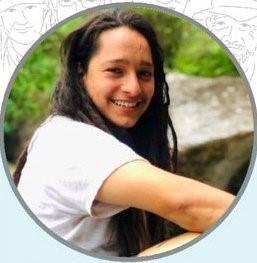This month we bring you news from Peru, Ecuador, Bolivia, Paraguay, Venezuela, Colombia, Brazil, Chile and Argentina. Amnesty has issued an update to its Urgent Action regarding protests in Peru, following the deaths of a further 18 people on 9 January. Amnesty has also written to the Ecuadorian authorities regarding proposed reforms to the Ecuadorian constitution, which could endorse the permanent use of armed forces in public security tasks in the country. In Venezuela, Amnesty has launched an Urgent Action and public letter to Volker Türk after the Venezuela authorities moved to impose restrictions on non-governmental organisations in the country. Amnesty has also issued an Urgent Action after the assault of the Chilean protester Moisés Órdenes. Regarding Brazil, Amnesty has condemned the invasion of Parliament, the President’s Palace and the Supreme Court by extremist groups on 8 January and has an open petition to the Brazilian Public Ministries to build external and participatory control of police activity by 2024.
PERU
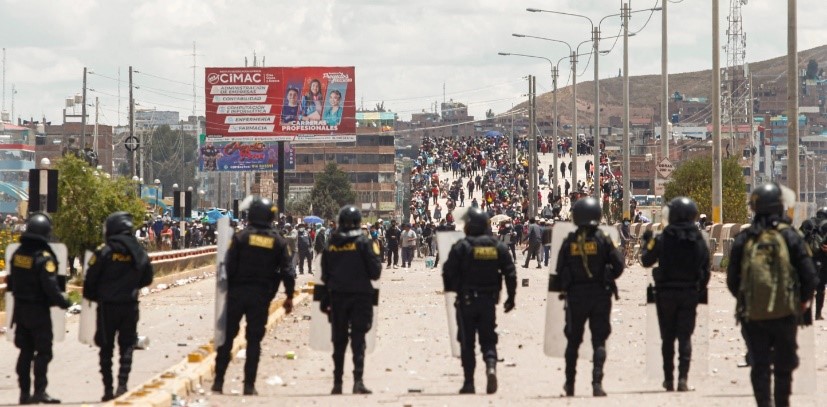
Since social protests began in different regions of Peru on 7 December, at least 40 people, including minors, have died and dozens, including civilians and police, have been injured, many of them from firearms, in the context of the repression of demonstrations. Amnesty has called on the Peruvian authorities to put an immediate end to the unnecessary and disproportionate use of force against the civilian population as a first step towards laying the foundations for a way out of the current crisis facing the country.
Amnesty issued an update to its Urgent Action, following the deaths of 18 people, including a police officer, in Juliaca, Puno region, on 9 January. You can support the action here. We used this letter at our last meeting.
The UK Government has expressed concern about the reports and called on the Peruvian Government to intensify its efforts to ensure a proportional and legal response to protests and the protection of human rights, “even in the face of violence, vandalism and attacks, which are unacceptable and have no place in peaceful protest”; and has urged immediate and impartial investigations into allegations of abuses and disproportionate action.
In his response (view here) to Graham’s recent communication to him, the Peruvian Ambassador has conveyed his government’s deep regret at the loss of human lives during recent protests and said that the government was carrying out a criminal investigation on a case-by-case basis to establish the corresponding criminal responsibility. He ascribed the deaths to violent actions caused by people whose intention was to subvert the democratic order.
On 29 January, a crisis team from Amnesty’s Americas Regional Office arrived in Peru to “investigate serious human rights violations and possible crimes under international law committed in the context of the wave of protests that began last December”. Amnesty has now issued a press release based on their findings.
ECUADOR
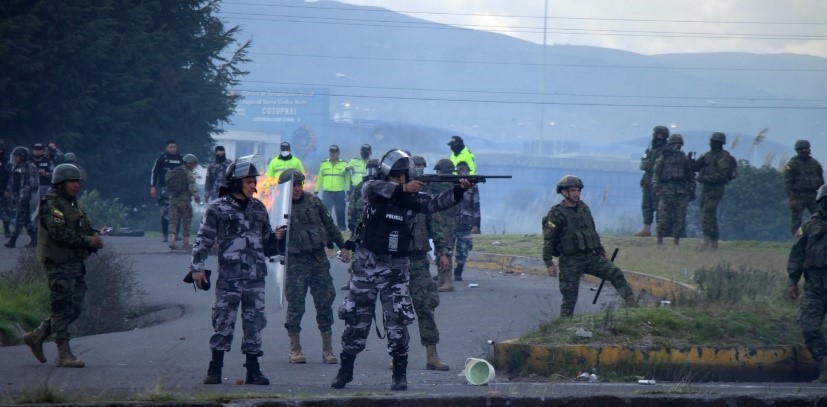
The National Assembly of Ecuador’s Occasional Commission for the Treatment of Constitutional Amendments and Reform Projects is discussing a partial reform to the Constitution, proposed by President Guillermo Lasso, which would endorse the permanent use of the Armed Forces in public security tasks in the country. Amnesty has written to the Commission members, expressing its concern about the draft reform, which contravenes Ecuador’s international human rights obligations.
BOLIVIA
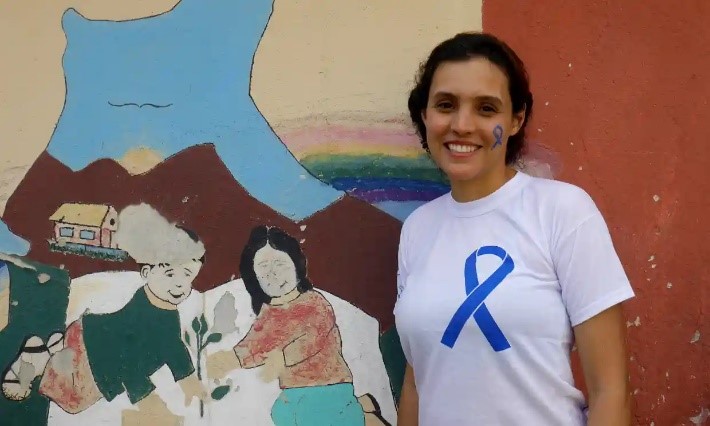
In a historic verdict, the Inter-American Court of Human Rights has found the Bolivian government to be “internationally responsible” for violating the rights of a rape survivor. Brisa De Angulo was unable to find justice in the country’s courts when, aged 15, she was repeatedly raped over a period of months by a relative. The court found that Bolivia was responsible for discrimination based on De Angulo’s gender and the fact that she was a child; and that its courts had “revictimised” her during judicial proceedings.
PARAGUAY
The U.S. Treasury has sanctioned ex-President Cartes and current Vice-President Velazquez for their involvement in rampant corruption that undermines democratic institutions in Paraguay. As a result, all their property and interests in property in the United States or in the possession or control of U.S. persons have been blocked.
VENEZUELA
International organizations have expressed concern over a bill which may criminalise civil society organizations in Venezuela. The Law of Supervision, Regularisation, Performance, and Financing of Non-governmental and related organizations would force non-governmental organizations to seek authorisation from the Venezuelan authorities to operate in the country and to disclose where they are in receipt of foreign funding, with the bill targeted at identifying those ‘foreign agents’ aimed at destabilizing ‘national sovereignty’.
Such restrictions would contradict generally accepted standards applicable to civil societies, where organisations are considered to be allowed to conduct their work without burdensome restrictions and should be able to receive foreign funding. There are further concerns that, given the reliance of the International Criminal Court on research conducted by non-governmental organizations, the bill could restrict the current ICC investigation into human rights offences perpetrated in Venezuela. Please share and promote our Urgent Action and the Amnesty’s open letter to the UN High Commissioner for Human Rights, Volker Türk. Please speak to James Baird (james.baird@amnesty.org.uk) for further details. Other organisations, including Human Rights Watch, the Center for Justice and International Law, and the Due Process of Law Foundation have already published an open letter.
Illegal mining operations in Yapacana National Park cleared over 750 hectares of forest between 2021 and 2022, according to new satellite imagery published by Amazon Conservation. The findings mean that the accumulated deforestation in Yapacana National Park is estimated to be over 1,500 hectares. The National Park features areas important to indigenous groups, with seventeen hectares having been cleared from Tepui, a mountaintop considered sacred by local indigenous groups. Colombian guerrilla fighters, including the National Liberation Army (ELN) and the Revolutionary Armed Forces of Colombia (FARC-D), often control the mines in Yapacana in tacit coordination with armed forces. Human rights abuses have been common in the wider Orinoco Mining Arc since 2016, with indigenous men often forced to work against their will and illegal mining operations contaminating local water supplies. In July 2022, an activist group reported that Virgilio Trujillo Arana, an Indigenous Uwottuja man who opposed armed groups conducting illegal mining operations, was shot in the Amazonas state capital.
UN Human Rights Chief, Volker Türk, called for the Venezuelan government to address key human rights challenges. After meeting President Maduro, Türk reiterated the need for the government to address the use of arbitrary detention, the ratification of the Convention on Enforced Disappearances and the Latin American and Caribbean regional Escazú agreement on the environment, the elimination of the criminalisation of same sex relations, the revision of the restriction of abortion and the enforcement of indigenous rights.
COLOMBIA
Programa Somos Defensores (We are Defenders) reports that 46 human rights defenders and social leaders were killed in the third quarter of 2022 compared to 28 for the same period of 2021. Indigenous leaders were particularly targeted by killers, who were in the main thought to be paramilitaries. The 64% increase in killings in the quarter is a continuation of the sharp increase in killings in the first 9 months of the year compared to 2021. The Ombudsman reports that at least 145 HRDs and social leaders were killed last year.
The Mayfair and Soho and Worcester Groups with Richard continue campaigning on behalf of the Peace Community of San Jose de Apartado. In December, the new Defence Minister, Ivan Velasquez, who is a highly respected human rights lawyer, visited the community. But the Peace Community report that they continued to be harassed and threatened by paramilitaries, who have been operating with impunity in the region for many years.
The UN’s High Commissioner for Human Rights has negotiated an extension of their Colombia Office to 2032. In his report, Volker Turk notes that 102,000 people had been living in forced confinement and another 86,000 had been forcibly displaced in 2022. He writes ‘The levels of violence that communities experience from diverse armed groups is unimaginable. Displacement, confinement, gender and sexual-based violence, massacres form part of their daily experience.’
The Organisation of American States has called on Colombia to release people who were arrested and detained during the National Strike in 2021. About 150 people are believed to still be in prison awaiting trial 20 months later. The Attorney General, who was appointed by President Duque, is resisting calls for their release. President Petro has condemned their continued detention ‘a persecution’.
Richard met with the Foreign Office, the Colombian Charge d’affaires and six Colombian Senators in December to present the findings of Amnesty International’s three reports on the National Police’s excessive use of force during the National Strike. Amnesty is working with the new administration, alongside 15 Colombian NGOs, lawyers and parliamentarians, on a major restructuring and reform of the National Police and its Anti-Riot squad (ESMAD). The UK has been training the Colombian police for many years.
Peace Brigades International says ‘The time has come for Colombia to support the efforts of women and others searching for victims of enforced disappearance. Women suffer very serious human rights violations while, individually or collectively, searching for loved ones, including sexual violence, kidnapping, privation of liberty, extortion, threats, and reprisals.’ According to the Search Unit for Disappeared Persons, 99,000 people were disappeared during the conflict. In the last five years they have identified 746 bodies.
BRAZIL
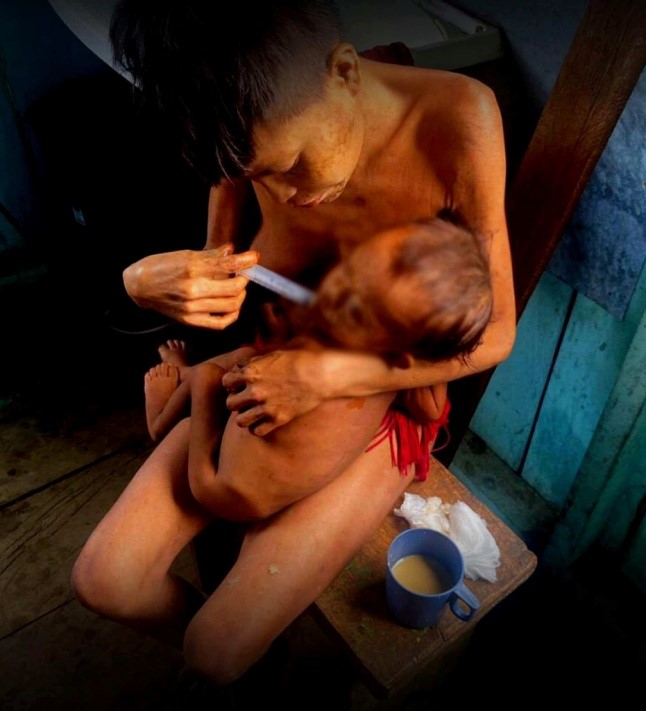
Mongabay reports that at least 570 Indigenous Yanomami infants have died over the past four years from treatable diseases such as diarrhoea and malaria, highlighting the ongoing plight of one of Brazil’s most persecuted peoples. This is an increase of 29% compared to the previous 5 years. Six out of ten children under five are malnourished. The new government of President Lula da Silva has set up a task force to prevent further deaths.
Amnesty has condemned the invasion of parliament, the president’s palace and the Supreme Court by extremist groups on 8 January. ‘It is alarming that authorities such as the Federal Police, Federal Public Prosecutor’s Office, Public Prosecutor’s Office of the Federal District and the Government of the Federal District have not been able to identify the instigators and financiers of the invasion and prevent today’s attacks from taking place.’
Amnesty calls on Public Ministries to build external and participatory control of police activity by 2024, with the institution’s commitment to move forward to stop police brutality. Brazil’s police killed more than 6,000 people in 2022. You can sign the petition (Portuguese) here.
Brazilian police have named the alleged mastermind behind the murders of the British journalist Dom Phillips and the Brazilian Indigenous expert Bruno Pereira in the Amazon last year. According to The Guardian, investigators have concluded Ricardo Villar Coelho, who has been accused of running an illegal fishing racket in the remote border region, ordered the murders.
Amazon Watch reports that two young men from the indigenous Pataxo community were shot dead when they were travelling to a farm in a contested region in Bahia state claimed by the Pataxo. ‘This type of brutality affects all Indigenous peoples in the country and is a consequence of the climate of violence and impunity fostered by the Bolsonaro administration, with major implications for Indigenous peoples and their lands. The response by the federal government under President Lula da Silva is notable because government agencies are now proactive in responding to these attacks.’
CHILE
Amnesty has issued an Urgent Action for Chile. Moisés Órdenes, like many others, was demonstrating peacefully in Plaza Ñuñoa on 21 October 2019. Unprovoked, a police squad began to beat him brutally. This cruel attack ended in serious injuries, including fractured ribs, loss of teeth, and serious eye damage.
On 5 December 2022, the public prosecutor in charge of investigating the case decided to close its investigation into seven out of the 13 officers charged with the attack. Moises’ family and lawyers claim there are inquiries left to be performed and that the investigation is far from exhausted.
This is the link https://www.amnesty.org/en/documents/amr22/6360/2023/en/ ; please write to the Regional Prosecutor, calling on her to reopen the investigation into those seven officers and guarantee Moisés Órdenes’ right to justice. Please copy your appeal to the Chilean Ambassador; or you can write to her separately:- Ambassador Susana Herrera-Quezada, Chilean Embassy in London, 37-41 Old Queen Street, London SW1H 9JA.
It’s worth reflecting, and perhaps adding to any letters, that last October Chile was elected as a member of the United Nations Human Rights Council, for the period 2023-2025. This puts an additional onus on Chile in the promotion and protection of human rights. The Ministry of Foreign Affairs responded at the time:-
“We understand this election not only as a great honour that the international community has given us, but also as a great responsibility for all those who expect the Human Rights Council to be an effective tool for enforcing the principles that guide its mission.”
Chile’s President, Gabriel Boric, has consistently criticised human rights abuses in other countries, including El Salvador, Venezuela, Nicaragua, and Cuba. This is regardless of the political ideology of the government committing those abuses. And when he met with an Amnesty International delegation last April, he expressed his commitment to ensure that victims of human rights violations are central to his government’s priority actions.
ARGENTINA
Argentina has just been subject to a Universal Periodic Review (UPR) by the United Nations Human Rights Council. This is a unique process which involves a review of the human rights records of all UN Member States. During the review, States declare what actions they have taken to improve the human rights situations in their countries and to fulfil their human rights obligations.
The Argentine delegation was led by Horacio Pietragalla Corti, Secretary for Human Rights. You can read Amnesty International’s submission to the UPR Working Group, which outlines their suggested recommendations for the 13 states being reviewed.
You can watch a webcast of the Argentine Review, although it’s over 3 hours long. We await the report of the UPR working group and their decisions.
South America Team – Richard Crosfield (Colombia and Brazil), David Rogers (Argentina and Chile), James Baird (Venezuela) and Graham Minter (rest of South America). And please don’t forget that you can follow us on our Facebook page and Twitter.
